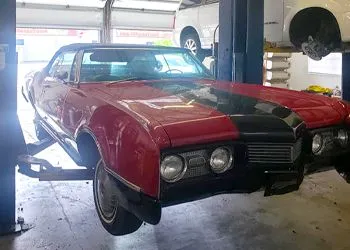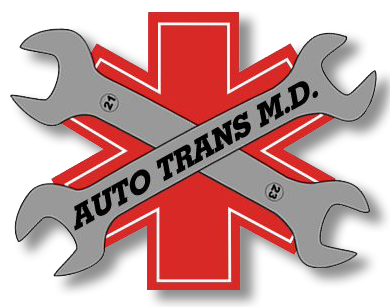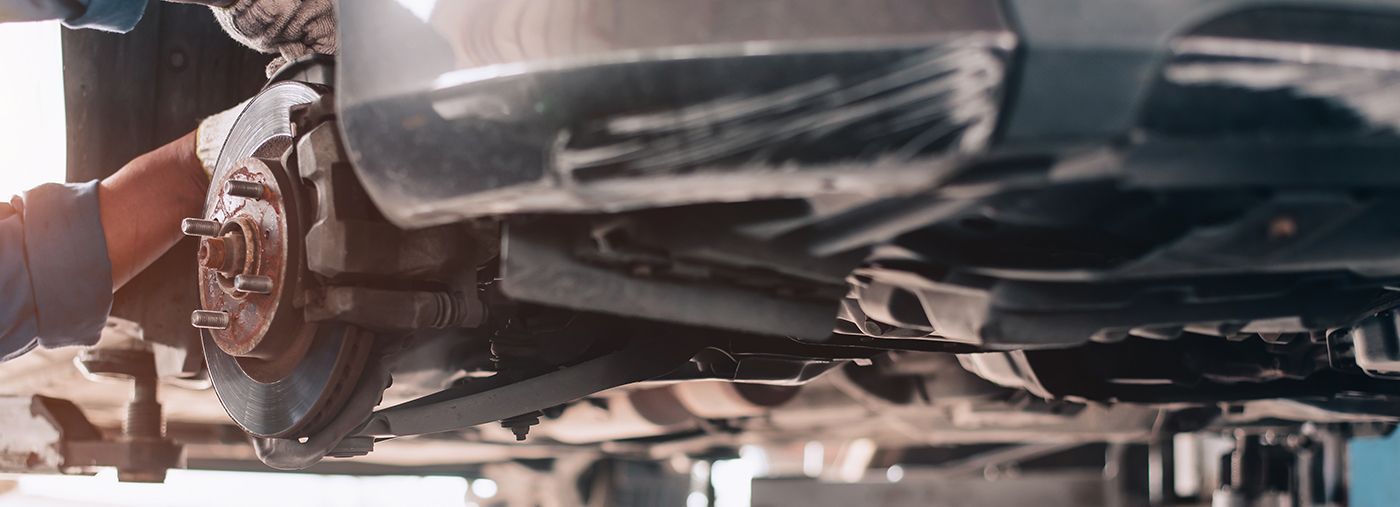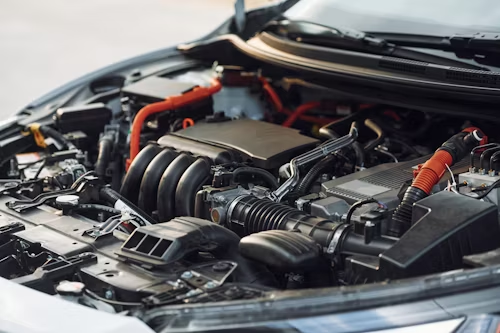Auto Trans M. D. Blog

At Auto Trans M.D., we aim to consistently outperform our clients’ expectations by providing top-quality repairs, fair rates, and exceptional service. We specialize in transmission services in West Palm Beach, but also offer expertise with general auto repair in the local area. Whether you need a transmission rebuild or an oil change, our team can get the job done right. And we appreciate it when our clients provide feedback. Here’s a look at some of our latest reviews. “I took my car there and was impressed with the attention, honesty, and speed of the work.” — Deynita S. “As always, very professional, excellent work, friendly service. I would not go anywhere else for service on my car!!” — Susan F. “Took my 2019 F150 to Auto Trans MD. Working with them was a great experience they were straightforward from the beginning and gave me a great price including a 1 year warranty unlike other nearby shops that were just price gouging me to do the same job. Sam was super transparent and thorough in his diagnostic of my transmission and even tried to determine if all I needed was a small repair with my coolant before making the decision to do a full rebuild in order to save me some money. Turned out my transmission did need the rebuild but they did a great job on it and finished it in the timeframe that they gave me. All in all, great shop to take your car to, highly recommend!” — David C. “Great customer service! Repaired transmission very fast! Very reasonable price! Thanks so much!” — Waldemar H. “We came in thinking we had a transmission issue—and I’ll be honest, I know nothing about transmissions. I was bracing for bad news and a big bill. But Sam took a look, diagnosed the real issue (which turned out to be a simple fix), and had us back on the road in no time. What really stood out was his honesty. He could’ve easily upsold us or made it sound worse than it was, but he didn’t. He even pointed out a couple of things to keep an eye on down the road—nothing urgent, just helpful info to plan ahead. Already telling all my friends: if you want a mechanic who’s honest, skilled, and genuinely cares, go here!” — Emily C. Transmissions & General Auto Repair in West Palm Beach, FL For expert auto repair in West Palm Beach and the surrounding area, contact Auto Trans M.D. at 561-316-0057 . Feel free to give us a call to make an appointment!

When components like shocks, struts, springs, or control arms begin to wear out, you’ll usually notice changes in how your car handles and responds on the road. To help you stay ahead of costlier repairs and safety risks, it’s important to address these signs ASAP. At Auto Trans M.D., we provide expert suspension repair in the greater West Palm Beach area. Here are four common signs that your vehicle may have a suspension problem. Excessive Bouncing/Rough Ride One of the most noticeable signs of suspension trouble is a ride that feels unusually rough or bouncy. If you feel every bump in the road or your car continues bouncing after hitting a dip, your shocks or struts may be worn out. These components are designed to absorb impact and keep your vehicle stable. When they fail, your car can become harder to control, especially at higher speeds. Pulling or Drifting While Turning If your vehicle leans excessively, pulls to one side, or feels unstable while turning, your suspension may not be keeping the car balanced. Worn or damaged components can shift weight unevenly, reducing traction and increasing the risk of losing control. This problem is particularly dangerous during emergency maneuvers or wet road conditions. A professional inspection can identify the exact cause of this symptom. Uneven Tire Wear Your suspension system helps ensure that all four tires maintain even contact with the road. When something is wrong—whether it’s misalignment, damaged control arms, or worn shocks—your tires may begin wearing unevenly. Bald spots or excessive wear on one side of a tire can point to suspension problems. Since tires are expensive to replace, addressing suspension issues early can save you money and improve your vehicle’s handling. Knocking, Clunking, or Creaking Sounds Unusual noises can indicate that suspension components are worn or loose. Common culprits include damaged bushings, worn ball joints, or failing shocks. Any persistent noise should be checked quickly before the issue escalates. Suspension Repair in West Palm Beach, FL For auto repair in West Palm Beach and the surrounding area, contact Auto Trans M.D. at 561-316-0057 . At our local auto shop, we can expertly handle your vehicle’s repair and maintenance needs. Feel free to give us a call today to schedule an appointment!

Routine oil changes are one of the most effective ways to keep your car running smoothly for years to come. Yet, many drivers delay this essential maintenance, thinking a few extra miles won’t make a difference. The truth is that fresh oil plays a critical role in keeping your engine clean, cool, and properly lubricated. Skipping oil changes can lead to costly repairs and reduced performance. At Auto Trans M.D., we provide full-service oil changes in the greater West Palm Beach area. Here are four reasons why it’s so important to follow your oil change schedule consistently. Prevents Engine Wear and Damage Motor oil acts as your engine’s lifeblood, lubricating its many moving parts so they can work together smoothly. Over time, oil breaks down and becomes contaminated. When that happens, it can no longer optimally protect engine components from friction and heat. Regular oil changes help ensure that your engine stays properly lubricated, reducing wear and preventing damage. Keeps the Engine Cleaner Dirty oil can cause sludge to build up inside the engine, clogging oil passages and restricting the flow of lubrication. This buildup can reduce performance and efficiency, and in severe cases, cause major engine trouble. Fresh oil helps clean away contaminants and prevent sludge from forming. By following your oil change schedule, you help your engine stay clean on the inside. Improves Fuel-Efficiency When oil becomes old and dirty, it creates more resistance inside the engine. This forces the engine to work harder, using more fuel to maintain performance. Clean, properly flowing oil reduces internal friction, allowing the engine to run more efficiently. In the long run, regular oil changes can save you money at the pump while keeping your car’s performance at its best. Decreases the Risk of Overheating In addition to lubrication, motor oil helps regulate engine temperature by absorbing and dispersing heat. When oil loses its protective properties, it can no longer effectively cool the engine, increasing the risk of overheating. Consistent oil changes ensure that your vehicle always has fresh, high-quality oil capable of managing heat and keeping the engine operating within safe temperature limits. Full-Service Oil Change in West Palm Beach, FL For auto maintenance in West Palm Beach and the surrounding area, contact Auto Trans M.D. at 561-316-0057 . At our nearby auto shop, we can expertly handle your vehicle’s repair and maintenance needs. Feel free to give us a call to make an appointment!

Your vehicle’s automatic transmission is responsible for smoothly shifting gears and delivering power to the wheels. Because transmission repairs or replacements can be costly, it’s important to take preventive steps to keep it in strong working order. By practicing smart maintenance habits, you can help ensure your transmission operates reliably for many years. Here are four tips for maintaining the health and performance of your automatic transmission. Stay on Schedule with Fluid Changes Transmission fluid serves as both a lubricant and coolant, reducing friction and heat inside the system. Over time, this fluid can become dirty or degrade, which can lead to slipping, overheating, and increased wear on internal parts. Check your owner’s manual for the recommended fluid change interval and make sure to use the type specified for your vehicle. Regular fluid maintenance is one of the simplest and most effective ways to extend transmission life. Avoid Overloading Your Vehicle Heavy loads put extra strain on the transmission, forcing it to work harder and generate more heat. Consistently carrying or towing more weight than your vehicle is designed for can accelerate wear and lead to overheating. Be mindful of your car’s load capacity, especially when hauling cargo or towing trailers. Don’t Ignore Symptoms of Trouble Early detection of transmission trouble can save you from expensive repairs. Be alert to signs such as delayed shifting, grinding noises, slipping gears, or red fluid leaks under your vehicle. A burning smell can also indicate overheating or low fluid levels. If you notice any of these symptoms, have your vehicle inspected by a transmission mechanic as soon as possible. Avoid Shifting Between Drive and Reverse While Moving Shifting between drive and reverse before your car comes to a complete stop can cause internal damage. The sudden change in direction can stress gears, leading to premature wear or failure. Always allow the vehicle to stop fully before changing between these gears to protect your transmission from unnecessary strain. Transmission Service in West Palm Beach, FL When you need transmission service in West Palm Beach and the surrounding area, contact Auto Trans M.D. at 561-316-0057 . At our nearby transmission shop, we can expertly handle your vehicle’s transmission needs. Feel free to give us a call to make an appointment!

Your car’s alternator is a vital component of its electrical system, responsible for keeping the battery charged and powering everything from headlights to the radio while the engine is running. When the alternator starts to fail, it can create a chain of electrical problems and eventually leave you stranded with a dead battery. Catching the warning signs early can save you from an inconvenient breakdown. At Auto Trans M.D., we provide expert alternator replacement and auto electric repair in the greater West Palm Beach area. Here are five common symptoms of alternator trouble. Lights are Dimming or Flickering One of the most noticeable signs of alternator failure is inconsistent lighting. With an alternator issue, your headlights or dashboard lights may dim or flicker. Since the alternator is responsible for supplying steady power, any fluctuation in brightness often signals that it is struggling to keep up with demand. Difficulty Starting the Car If your vehicle is slow to start or requires multiple attempts, the alternator may not be providing enough charge to the battery. Although a dead battery is often blamed, the real issue may be the alternator failing to recharge it while driving. Strange Sounds from the Engine Bay A failing alternator can produce unusual noises due to a worn-out bearing or loose belt. You may hear grinding, whining, or squealing sounds from under the hood. These noises shouldn’t be ignored, as they often point to alternator wear that can quickly progress into complete failure if left unchecked. Malfunctioning Electrical Accessories Since the alternator powers your car’s electronics, you may notice odd electrical issues when it begins to fail. Power windows may move sluggishly, the radio may cut out, or the AC could work poorly. These problems may appear random but often share the same root cause—an alternator that can no longer deliver consistent voltage. Battery Warning Light on the Dashboard Most modern cars are equipped with a dashboard warning system that alerts you to charging issues. If the battery light illuminates, it doesn’t always mean the battery itself is bad. Instead, it often signals that the alternator isn’t charging properly. Ignoring this light can lead to a complete breakdown once the battery drains fully. Alternator Replacement & Auto Electric Repair in West Palm Beach, FL For auto repair in West Palm Beach and the surrounding area, contact Auto Trans M.D. at 561-316-0057 . At our local auto shop, we can expertly handle your vehicle’s repair and maintenance needs. Feel free to give us a call today to make an appointment!






